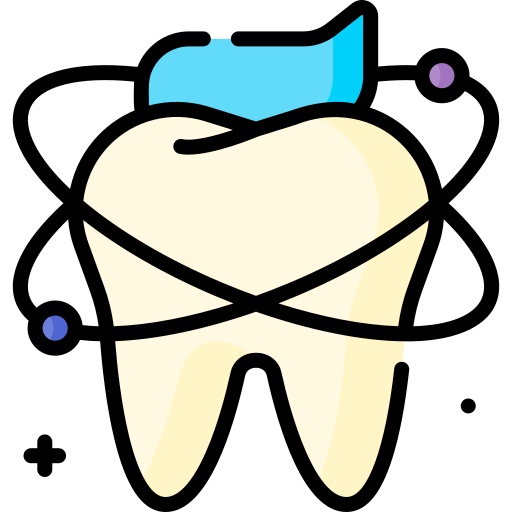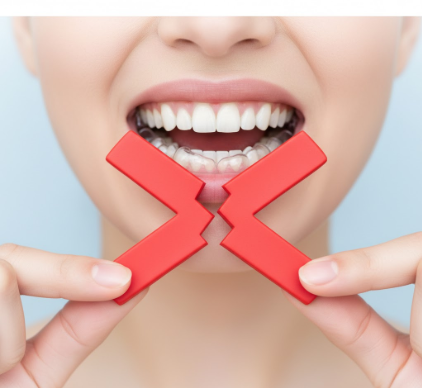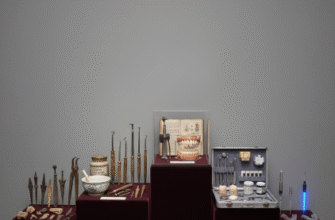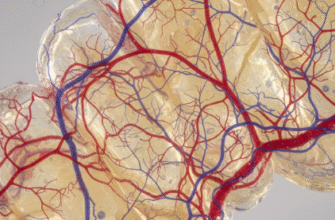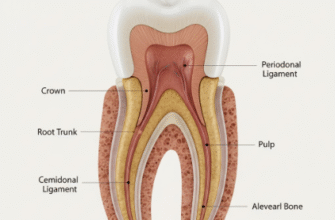Ever heard someone sigh and say, “Oh, dental problems just run in my family,” or “No matter what I do, I always seem to get cavities”? It’s a common sentiment, this idea that a lifetime of perfect oral health is a bit of a unicorn – lovely to imagine, but ultimately, a fantasy. Many folks seem resigned to the idea that some level of dental trouble is simply inevitable, a rite of passage like getting your first grey hair. But what if this widely accepted notion is, for the most part, just a myth? What if the power to sidestep a vast majority of common oral woes lies more in our hands than we’ve been led to believe?
The truth is, while it might be a stretch to claim one can prevent
every single conceivable dental issue from ever arising (accidents happen, and some extremely rare conditions exist), the overwhelming majority of everyday concerns – the kind that cause discomfort, affect your smile’s appearance, or lead to more complicated interventions – are surprisingly preventable. It’s not about luck; it’s about knowledge and consistent action. Shifting our mindset from reactive damage control to proactive care can make a world of difference, transforming our oral health journey from one of dread to one of confidence.
Unpacking the “Inevitable”
Let’s consider some of the usual suspects often chalked up to bad luck or genetics. Take tooth decay, or cavities, for instance. These don’t magically appear. They are the result of a process where acids, produced by bacteria feeding on sugars in our mouth, erode tooth enamel over time. This process is heavily influenced by what we eat and how diligently we clean our teeth. Similarly, issues with gum health, like redness or puffiness, often begin with plaque buildup – a sticky film of bacteria that, if not regularly removed, can irritate the gums. These aren’t predetermined fates; they are outcomes of specific, manageable conditions.
Even concerns like persistent bad breath, while sometimes indicative of other underlying issues, frequently stem from trapped food particles, an overgrowth of certain bacteria, or a dry mouth – all of which can often be addressed through improved oral hygiene practices and lifestyle adjustments. The narrative that these are just “things that happen” often overlooks the significant role our daily habits play in either inviting or warding off these common problems.
The Powerhouse of Daily Habits
So, if not fate, then what? The cornerstone of preventing most dental troubles lies in a few simple, yet profoundly impactful, daily routines. Think of it as building a fortress for your smile, brick by consistent brick.
Consistent Cleaning: This is non-negotiable. Brushing your teeth thoroughly, at least twice a day, is fundamental. It’s not just about a quick once-over; it’s about ensuring all surfaces of each tooth are cleaned. And let’s not forget flossing or using interdental cleaners. These tools reach areas your toothbrush bristles can’t, dislodging food particles and plaque from between teeth and under the gumline – prime real estate for troublemaking bacteria.
Mindful Eating and Drinking: What we consume plays a starring role in our oral health. Sugary snacks and drinks are notorious for fueling the bacteria that lead to enamel erosion. Frequent snacking, especially on carbohydrate-rich foods, also provides a constant food supply for these bacteria. Opting for more tooth-friendly choices, like fresh fruits, vegetables, and water, can significantly reduce the acidic onslaught your teeth face. It’s not about total deprivation, but about awareness and moderation.
Verified studies consistently show a direct link between sugar consumption frequency and the likelihood of developing cavities. Reducing how often you expose your teeth to sugars is a key preventive strategy. This is more impactful than the total amount of sugar consumed in one sitting.
Beyond the Basics: Supporting Your Smile
While daily brushing and flossing, coupled with a sensible diet, are the heavy lifters, there are other supportive measures that contribute to a robust defense against dental problems.
Staying Hydrated: Water is your mouth’s best friend. It helps wash away food debris and neutralize harmful acids. Saliva is our body’s natural defense mechanism against tooth decay, and staying well-hydrated ensures good saliva flow. A dry mouth, on the other hand, can create an environment where bacteria thrive more easily.
The Role of Regular Professional Check-ins: While home care is paramount, having a professional eye periodically assess your oral environment can be incredibly beneficial. Dental professionals are trained to spot any subtle signs of potential issues long before they become noticeable or problematic for you. These check-ins also typically include thorough cleanings that can remove hardened plaque (tartar) which regular brushing and flossing might miss. Think of it as a regular tune-up for your smile, helping to keep everything running smoothly.
It’s important to understand that these check-ups are not just about “fixing things” after they go wrong. A significant part of their value lies in prevention – offering guidance tailored to your specific oral landscape and helping you maintain optimal health, thereby minimizing the chances of problems developing in the first place.
What About Genetics and Unforeseen Events?
Now, it’s true that genetics can play a role. Some people might have enamel that’s naturally a bit thinner, or a predisposition to a more aggressive bacterial environment in their mouth. However, genetics rarely, if ever, write an unchangeable destiny for your teeth. Think of it this way: if you have a genetic predisposition to sunburn easily, you don’t just accept painful burns as inevitable; you take extra precautions like using sunscreen and wearing a hat. Similarly, if you suspect a genetic factor might make you more susceptible to certain oral issues, it simply means your preventive efforts need to be even more diligent and consistent. It’s a reason to be more proactive, not less.
And what about accidents? A chipped tooth from a fall or a sports injury is, by its nature, often unpredictable and unpreventable in the moment it occurs. However, teeth that are already strong and healthy, free from decay or underlying weaknesses, are generally more resilient and may fare better in such unfortunate events. Moreover, for those involved in contact sports, using a mouthguard is a crucial preventive measure that can drastically reduce the risk of dental trauma.
While many common dental problems are preventable through good habits, it’s crucial not to ignore any persistent pain, unusual changes in your mouth, or bleeding gums. Seeking professional observation promptly allows for early assessment. This proactive step can make a significant difference in managing any developing concerns effectively.
Shifting the Perspective: From Fear to Empowerment
The myth that dental problems are largely unavoidable can foster a sense of helplessness, leading to a reactive approach where we only pay attention to our mouths when something goes wrong. But by understanding the true power of prevention, we can shift this perspective entirely. Instead of fearing the dentist’s chair, we can see our oral hygiene routine and dietary choices as empowering tools that put us in the driver’s seat of our oral health.
Imagine the peace of mind that comes from knowing you’re doing everything reasonably within your power to maintain a healthy, comfortable smile. It’s about cultivating habits that become second nature, like buckling your seatbelt. Initially, it might take conscious effort, but soon it becomes an automatic part of your day, quietly working to protect you.
This proactive mindset doesn’t just save you from potential discomfort and complex procedures down the line; it also contributes to your overall well-being. A healthy mouth is intrinsically linked to general health, and taking care of your smile is an investment in your whole self.
The Achievable Goal of a Healthy Smile
So, is it possible to prevent
all dental problems? If we’re talking about every minor imperfection or extremely rare condition, then perhaps “all” is too strong a word. But can you prevent the vast majority of common, troublesome, and often costly dental issues like widespread decay, significant gum inflammation, and persistent bad breath? Absolutely, yes.
The journey to a healthier smile isn’t about achieving an unattainable standard of perfection. It’s about consistent, informed effort. It’s about understanding that your daily choices have a direct and profound impact. By demystifying the causes of common dental ailments and embracing straightforward preventive strategies, you can significantly rewrite your oral health story from one of potential inevitability to one of lasting wellness and confidence. The power, more often than not, truly lies with you.
